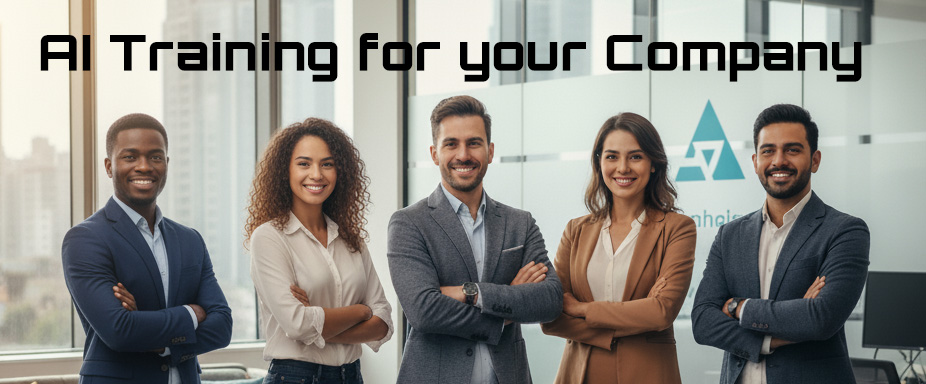When AI Comes to Work: Understanding Enterprise AI
So far, we've mostly talked about AI tools that anyone can use, often called "consumer AI." But there's a whole other universe of AI that's rapidly changing our workplaces: Enterprise AI. This is when your employer provides you with powerful AI tools designed specifically for business needs, with a huge focus on security, customization, and control.
Think of it this way: consumer AI is like a public library, open to everyone. Enterprise AI is like your company's private, secure research department. It has access to your company's internal data—sales reports, customer emails, project plans—and uses that context to provide highly relevant and useful assistance. This is why companies are adopting platforms from Google, OpenAI, and Anthropic (the makers of Claude); they offer a secure way to leverage the power of AI with confidential business information.
The Big Three: How Workplace AI Platforms Compare
Most companies choose from one of three main providers for their enterprise AI. While they all offer powerful AI, they have different strengths and are built for different needs.
| Provider | Core Strength & Focus | Integration | Pricing Model |
|---|---|---|---|
| Google (Gemini) | Deep Productivity Integration: Best for companies already using Google's tools. Aims to be the collaborative AI assistant inside your documents and emails. | Fully integrated into Google Workspace (Gmail, Docs, Sheets, etc.). Also offers advanced customization through its Vertex AI platform. | Included in Workspace Business and Enterprise plans, with monthly per-user fees ranging from $7 to $22. |
| OpenAI (ChatGPT Enterprise) | Advanced Conversational AI: Focuses on powerful, specialized AI agents for tasks like coding, research, or sales. | Integrates with common business tools like Microsoft Teams and Slack, but its main power is in custom integrations via its API. | Custom quotes for large organizations (150+ users). Smaller groups can use a "Team" plan for about $30/user/month. |
| Claude (Anthropic) | Large-Scale Data Analysis: Its standout feature is a massive "context window," allowing it to analyze extremely long documents, reports, or codebases at once. | Offers direct integration with developer tools like GitHub and other business systems. It's built for heavy-duty analysis. | Custom pricing for its Enterprise plan. It also offers flexible, usage-based billing based on how much data you process ("tokens"). |
What You Get with Enterprise AI
Beyond simple chat, enterprise platforms come with a suite of features designed for business control and security.
- Advanced Security & Compliance: These platforms are built with enterprise-grade data privacy. They include features to ensure the company meets legal and compliance standards.
- Centralized Admin Tools: Your company's IT department gets a central console to manage users and access. This often includes features like Single Sign-On (SSO) and role-based access control to manage who can do what.
- Audit Logs: Companies can keep track of how the AI is being used through detailed audit logs, which is crucial for security and accountability.
- Customization and Fine-Tuning: Businesses aren't stuck with the off-the-shelf model. They can customize and train AI on their own data to create highly specialized assistants for their unique workflows.
Quick Check
A legal firm needs an AI that can read and analyze hundreds of pages of case law documents at once. Based on the lesson, which provider would be the most suitable for this specific task?

Recap: Enterprise AI
What we covered:
- How Enterprise AI differs from consumer AI, with a core focus on security, customization, and integration with private company data.
- A comparison of the "big three" providers: Google (for productivity integration), OpenAI (for advanced agents), and Claude (for large-scale document analysis).
- The standard features of enterprise platforms, including advanced security, admin controls, and the ability to create custom models.
- The critical importance of using secure, company-approved AI tools for any work involving confidential information.
Why it matters:
- Understanding the capabilities and security of your workplace AI is no longer optional. It's a key skill for working efficiently and responsibly in the modern business world.
Next up:
- We'll demystify a term you might hear in advanced AI circles: "MCP," and explain why it's a foundational concept for building complex AI systems.


